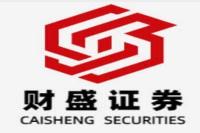Hong Kong Tech Stocks Take a Dip: Decoding the Latest Hang Seng Tech Index Plunge & What it Means for Investors
Meta Description: Hang Seng Tech Index plunged 1% to 4,368.41 points on November 21st. This in-depth analysis explores the causes, implications, and future outlook for Hong Kong tech investors, offering expert insights and actionable advice. Keywords: Hang Seng Tech Index, Hong Kong Tech Stocks, Tech Stock Market, Investment Strategy, Market Volatility, Asian Markets, China Tech, Geopolitical Risks
Wow! A 1% drop in the Hang Seng Tech Index (HSTI) might seem small, but for anyone invested in Hong Kong's vibrant tech scene, it’s a wake-up call. This isn't just another blip on the radar; it's a snapshot of the complex interplay of global economics, geopolitical tensions, and the unique challenges facing the Asian tech landscape. This isn't your grandpappy's stock market report; we're diving deep, providing you with insights that go beyond the headline numbers. We'll explore the underlying causes of this recent dip, unpack what it means for your portfolio, and, crucially, equip you with the knowledge to navigate this volatile market with confidence. Forget dry statistics; this is a human-centric analysis, blending expert knowledge with relatable real-world examples. Imagine understanding the market's whispers, anticipating its moves, and making informed decisions—that’s the power of real insight. This isn't just about numbers; it's about understanding the story behind the numbers, and that's exactly what we're going to deliver. Prepare to become more than just an investor; become a shrewd, informed, and empowered player in the exciting—and sometimes nerve-wracking—world of Hong Kong tech stocks. Are you ready to unlock the secrets of navigating this dynamic market? Let’s get started!
Hang Seng Tech Index: A Deep Dive into the Recent Decline
The Hang Seng Tech Index’s recent 1% drop to 4,368.41 points on November 21st isn't an isolated event. It reflects broader anxieties simmering within the global financial ecosystem. Several interconnected factors contributed to this dip, each deserving meticulous examination.
First, let's talk about global macroeconomic headwinds. The ongoing inflationary pressures in many developed economies, coupled with aggressive interest rate hikes by central banks (like the US Federal Reserve), are casting a long shadow over investor sentiment. This has led to a flight to safety, with investors shifting their capital from riskier assets, including tech stocks, towards more stable investments like government bonds. Think of it like this: when the economic weather turns stormy, investors often seek shelter in the safest harbors.
Secondly, the regulatory landscape in China, a major player in the Hang Seng Tech Index, continues to evolve. While some regulations aim to foster a healthier and more sustainable tech sector, others have created uncertainty and impacted investor confidence. The constant shifts in policy can make it challenging for companies to plan long-term strategies and, consequently, impact their stock performance. It’s a bit like navigating a minefield—one wrong step, and you could be facing significant setbacks.
Furthermore, geopolitical tensions are adding another layer of complexity. Rising global uncertainty, particularly concerning the ongoing conflict in Ukraine and increasing tensions between major world powers, contributes to market volatility. Investors often respond to such uncertainties by reducing their risk exposure, leading to sell-offs in riskier asset classes, including tech stocks. It's, frankly, a "wait and see" approach, and that waiting game can significantly impact stock values.
Finally, we can't ignore the impact of specific company performances within the index. Individual companies' earnings reports, product launches, or regulatory actions can significantly influence the overall index performance. A disappointing earnings report from a major tech company listed on the HSTI can trigger a sell-off, pulling the entire index down. It's a domino effect; one company's stumble can lead to a broader market wobble.
Understanding Market Volatility and Risk Management
Market volatility, as we've seen with the recent HSTI dip, is a harsh reality for investors. Understanding and mitigating this risk is paramount. Diversification is key; don't put all your eggs in one basket. Spreading your investments across various asset classes and sectors can help cushion the blow of market fluctuations.
Furthermore, thorough due diligence is crucial before investing in any stock. Understanding a company's financial health, its competitive landscape, and the potential impact of external factors is essential. Reading annual reports, following industry news, and staying informed about relevant regulations are essential steps in this process.
Risk tolerance is another critical factor. Investors should only invest in assets that align with their individual risk appetite. Aggressive investors might be comfortable with higher levels of risk and volatility, while conservative investors may prefer more stable investments. Knowing your own risk profile is the first step towards making wise investment decisions.
Consider using stop-loss orders to limit potential losses. A stop-loss order automatically sells your shares when they reach a predetermined price, helping to prevent significant losses during a market downturn. It's like setting a safety net—a crucial part of any robust investment strategy.
Lastly, remember that market timing is notoriously difficult. Trying to predict the market's every move is often futile. A long-term investment strategy, focused on consistent growth rather than short-term gains, is usually the most effective approach to navigate market fluctuations. Patience is a virtue, especially in the volatile world of stock investments.
Impact on Investors and Future Outlook
The recent dip in the HSTI presents both challenges and opportunities for investors. For those already invested, it's a time to review their portfolios and ensure their investments still align with their long-term goals and risk tolerance. Rebalancing your portfolio, adjusting your allocation based on your current risk assessment, might be a prudent move.
For those considering investing in Hong Kong tech stocks, a cautious approach is recommended. Thorough research and careful consideration of the factors discussed earlier are essential. The market is cyclical; downturns are often followed by periods of growth. It's a wait-and-see situation to assess if this is a temporary correction or the start of a more significant downward trend.
The future outlook for the HSTI remains uncertain. The interplay of global economic conditions, geopolitical factors, and regulatory changes will continue to influence its performance. Staying informed, remaining vigilant, and adapting your investment strategy based on evolving market conditions is crucial for success. It's a dynamic landscape, and adaptability is key.
Common Questions and Answers (FAQs)
Q1: Is this dip a sign of a larger market crash?
A1: It's too early to say definitively. While the dip is concerning, it's important to consider the broader context and not jump to conclusions. Further analysis and monitoring of market trends are necessary to assess the potential for a larger correction.
Q2: Should I sell my Hong Kong tech stocks?
A2: This depends on your individual investment goals, risk tolerance, and long-term outlook. If the dip aligns with your risk tolerance, holding onto your investment might be a viable strategy. However, if it exceeds your comfort level, reassessing your portfolio and potentially rebalancing might be wise.
Q3: What are the best strategies for navigating this volatility?
A3: Diversification, thorough due diligence, setting stop-loss orders, and adopting a long-term investment horizon are all crucial strategies for navigating market volatility.
Q4: Are there any specific stocks within the HSTI that are particularly resilient?
A4: Identifying resilient stocks requires in-depth analysis of individual company performance, financial health, and future prospects. This isn't a simple answer, and professional financial advice might be necessary.
Q5: How can I stay updated on HSTI performance and relevant news?
A5: Reliable financial news sources, reputable investment platforms, and professional financial advisors can provide you with the up-to-date information you need.
Q6: Is now a good time to buy Hong Kong tech stocks?
A6: Whether it's a good time to buy depends entirely on your risk tolerance and assessment of the market's future trajectory. A potential upside exists, but there are also inherent risks to consider. Professional advice is highly recommended.
Conclusion: Navigating the Uncertainties
The recent decline in the Hang Seng Tech Index highlights the inherent uncertainties within the global investment landscape. Successful investing requires a blend of knowledge, patience, and a well-defined strategy. While the short-term outlook might remain uncertain, a long-term perspective, coupled with continuous learning and adaptation, are your best allies in this dynamic market. Remember to consult with a financial advisor before making any significant investment decision—they can provide personalized guidance based on your individual circumstances and financial goals. The journey of an investor is a marathon, not a sprint; consistent effort and smart strategy are the keys to success.



